
OR
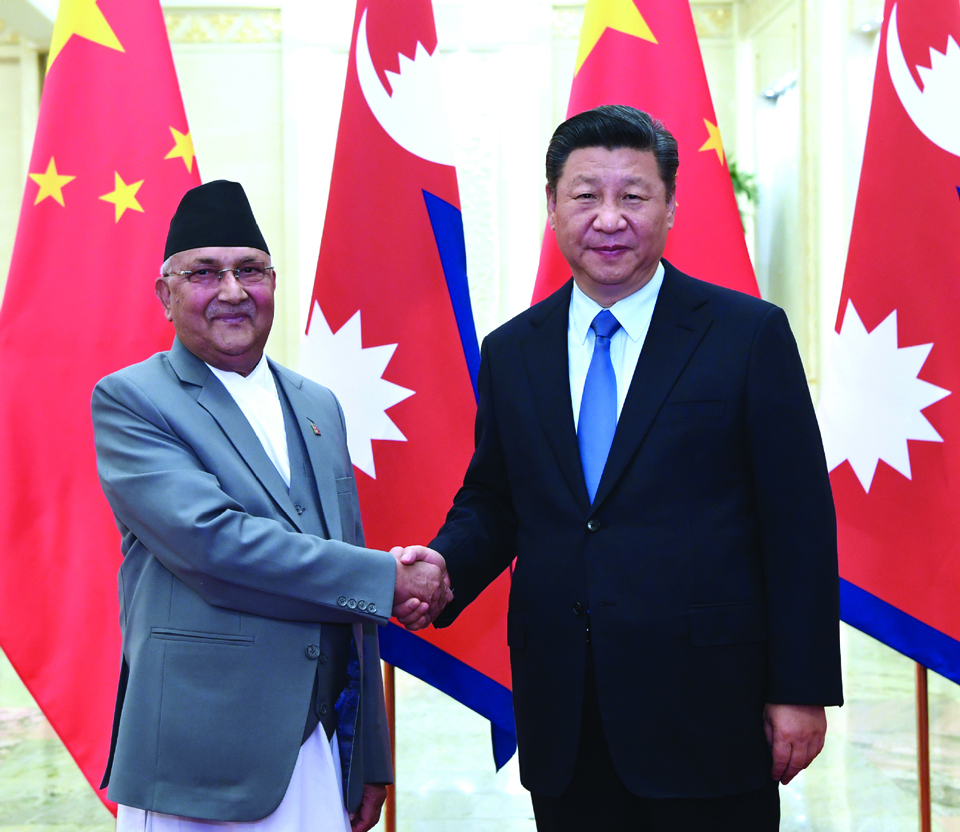
What is there for the Chinese to find substantively significant in this government that they did not see in previous governments?
Now that the din and dust kicked up in connection with Prime Minister KP Oli’s China visit last fortnight has settled, things have amply crystallized to sum up the exercise as a formality duly completed. Any effort at creating an impression of something ground-shaking having been achieved is a waste of time.
Except for those in the premier’s entourage, the visit has turned rather tame when it comes to substance. A string of agreements and understandings was signed. Had a Nepali Congress premier made the trip, the outcome would have been no different. Hence the time remains far from ripe for the hype and hyperbole over the “success” yet to be felt.
Foreign Minister Pradeep Kumar Gyawali declared the visit’s outcome as “more than expected,” while the prime minister termed it an “unprecedented success”. Party activists and delegates capitulated to the official claim to defend and detail the official brief. On the other hand, the Chinese stand is discreetly neutral over Oli’s claim and elation.
Indian Prime Minister Narendra Modi and Chinese President Xi Jinping meet regularly and exchange notes on Nepal. It is learnt that Xi and Modi have agreed upon something on Nepal—an issue that both Oli’s Nepal Communist Party (NCP) and Sher Bahadur Deuba’s Nepali Congress are certain about but not its detail.
The Chinese have discussed various aspects of Nepal with Indian Prime Minister Modi who has met with Xi five times in two years. New Delhi and Beijing steer clear of stepping on each other’s toes as long as their core interests are not adversely affected.
No leap forward
What is there for the Chinese to find substantively significant in this government that they did not see in previous governments? Beijing does not care how faithful NCP is about Marxism, Leninism or Maoism. An exclusive ‘communist’ tag is no reliable collateral for assurance to Beijing, which finds no dramatic difference in the conduct of diplomacy by Nepali Congress and NCP.
Beijing trusted and respected King Mahendra and King Birendra for four and a half decades. The way these two monarchs have been treated at home baffles and cautions it no end. In a country where Prithvi Narayan Shah, who unified the nation, has been viciously maligned, the anomalies spawned by the major political parties create no shock or stir, except reaffirming their inherently severe imbecility.
Oli’s visit was nearly postponed by one week at the eleventh hour, keeping the Nepali side on its toes all the time, in a somber prelude to the visit. Beijing unilaterally set Oli’s itinerary and intimated it to Kathmandu quite late. Noted journalist Mana Ranjan Josse, probably South Asia’s most knowledgeable scribe on China, says: “It is only that the present crop at Shital Niwas and PM’s office does not seem to have a clue as to how the Chinese conduct their business.”
“Flip flop” work will not work when dealing with Beijing, which looks at things with meticulous care, weighs them with patience and draws its conclusions accordingly. Nepal government made an absurd request to Beijing for arranging Oli’s official visit to Beijing during the Sanghai Cooperation Organization’s summit so that he too could rub shoulders with other international leaders. It would have been burdensome for the host to focus on two different fronts and hence a polite expression of inability to comply with the request.
China does not compete with India for the number of times top leaders visit Nepal or the number of years elapsed since their last visit to this country. Beijing’s stance: Treat us fairly even if we might rank second in your order of priority, but expect likewise from us too.
During Oli’s visit, Xi pointed out that Nepal can benefit from cooperation with India and China. In a news report in the Indian press, probably planted by the Indian government, Xi broached the idea of a mechanism that would also involve India for what is termed as “two plus one” approach to dialogue with Nepal. If so, the normally voluble prime minister has never made any mention of it either to the public or to the parliament. The report claimed that Nepal figured during the Xi-Modi informal in Wuhan last month.
Oli’s folly
Beijing has weighed, assessed and seen through Oli’s core desires, including a craving for a Xi visit to Kathmandu and Beijing’s explicit commitment to railway “connectivity” between Tibet and Kathmandu. When and how much investment in what form by whom and on what terms constituted questions too premature to be answered.
During his visit to Nepal in March last year, Chinese Defense Minister General Chang Wanquan expressed with then Prime Minister Pushpa Kamal Dahal his government’s interest in enhancing defense and security cooperation between the two countries. What has been the development on this score? Beijing makes cool calculations on such issues before setting the pace of its overall cooperation.
Even if representing an epitome of prime ministerial power and big promises, Oli bears the mark of shallow cunning and pretentious amiability. His interview with CGTN, a Chinese television, showed him fumbling to the extent of being out of step with the questions actually asked and drifting in his answers. No one expects the prime minister to be an expert on conversational English. But he should have used the service of an interpreter instead of trying to impress audiences back home and not the interviewer.
Nepali Congress expressed regret in the parliament that Oli did not raise the issue of Lipulekh, exposing its hypocrisy by not regretting that Oli did not raise the issue with Modi during his India visit in April. When asked whether Lipulekh came in for discussion in Beijing, Foreign Minister Gyawali said it was “not in the priority” of the visit. Contradicting him, Oli told parliament that the issue did figure. The mention could have been in a sentence or two, and Xi could have dismissed it with a nod or, at most, given it short shrift of “we can discuss it in the future”. In effect, China dodged Lipulekh and Oli avoided Beijing’s proposal for strengthening defense cooperation. It must be noted that former Prime Minister Kirtinidhi Bista, who Beijing saw as a good friend, had written an article lambasting Lipulekh talk between India and China without consulting Nepal first.
Let action speak
Following Nepal’s persistent insistence, India in 1969 withdrew its military mission and army communication personnel who had been posted in the northern areas bordering China since the early 1950s. In 1974, when the Tibetan armed rebel Ge Wangdi was killed in an operation by the Nepal army at Tinker, the Khampa rebellion was settled for good, much to Beijing’s relief and King Birendra’s enhanced stature in the Chinese leadership’s estimation.
Well-known foreign affairs watchdog Hiranya Lal Shrestha describes King Mahendra, and Chinese Chairman Mao Zedong and his Premier Zhou Enlai as “the principal architects of the Nepal-China relations”, whose demise proved to be “an irreparable loss to both the countries”. King Mahendra died in January 1972, Zhou in January 1976 and Mao in September 1976. King Birendra, too, had played a significant role in developing rapport with the highest level of Chinese leadership.
Nepal has been petitioning Beijing for Xi’s visit for the last few years. Xi has never said he won’t visit Nepal. He has promised to visit Nepal at a “convenient” time. But the then Indian Prime Minister Manmohan Singh also never said he would not pay a trip to Nepal. He served out two five-year terms in office, during which he travelled to more than 90 countries, though without sparing time for a visit to Nepal with which his country has “roti and beti” relations since “time immemorial”. Perhaps Xi will not go to Singh’s extent. He will go for a correct diplomatic course.
Regarding Oli’s latest trip to Beijing, therefore, one may invoke and paraphrase a familiar saying. The treat of a promise is not in its packaging but in the pace and effect of its implementation. There is many a slip between the cup and the lip. We will know about its course and outcome as time wears on and Oli vanishes into obscurity even if the NCP proclaims it will be in power for the next 50 years.
You May Like This
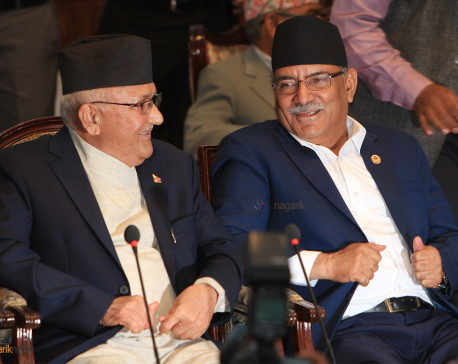
Much ado about ministers for Oli govt
KATHMANDU, Feb 26: The KP Sharma Oli led government is planning to expand its cabinet of ministers today. ... Read More...

Anushka reveals why she doesn't talk much about herself
MUMBAI, Oct 5: While many B-town stars stay in the headlines by talking about themselves on various platforms, actress Anushka Sharma... Read More...

Police clueless about racket involved in trafficking 79 Nepalis
KATHMANDU, Aug 25: The authorities have not been able to identify the people involved trafficking aspirant migrant workers to Bangladesh... Read More...


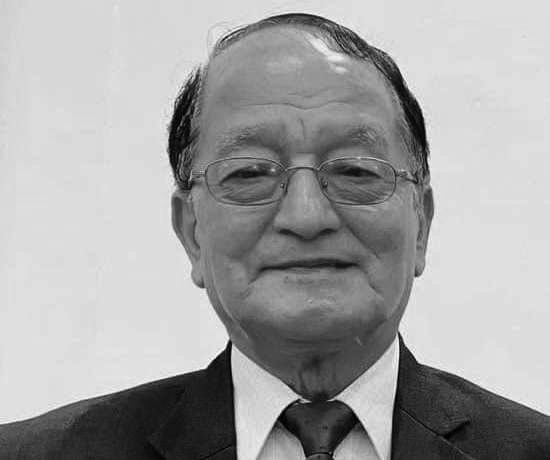
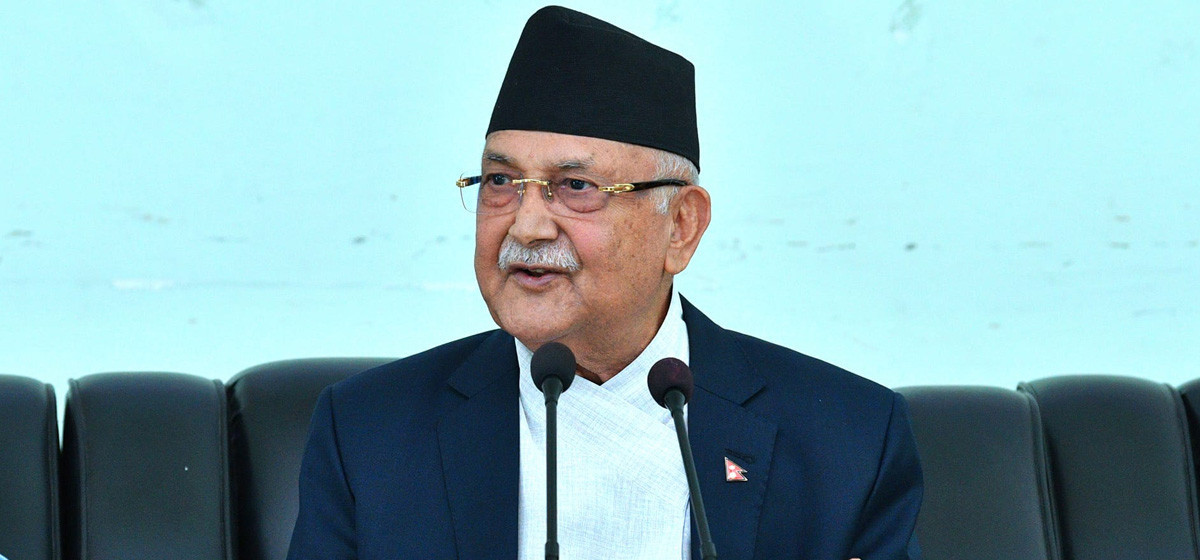
Just In
- iPhone 14 Pro Max-shot Nepali film 'A Place Under the Sun' set for global OTT platform release
- Vitamin A being administered to children across Nepal
- Idols of Lord Ram and Sita consecrated at Nepali temple in Thailand
- Satdobato-Balkumari road section to be closed at night for several days
- NC objects Gandaki Province assembly call
- Eight Chinese citizens injured in Scorpio-microbus collision in Pokhara
- Former chief secretary Shakya passes away
- UML Chair Oli appeals vote for Nembang








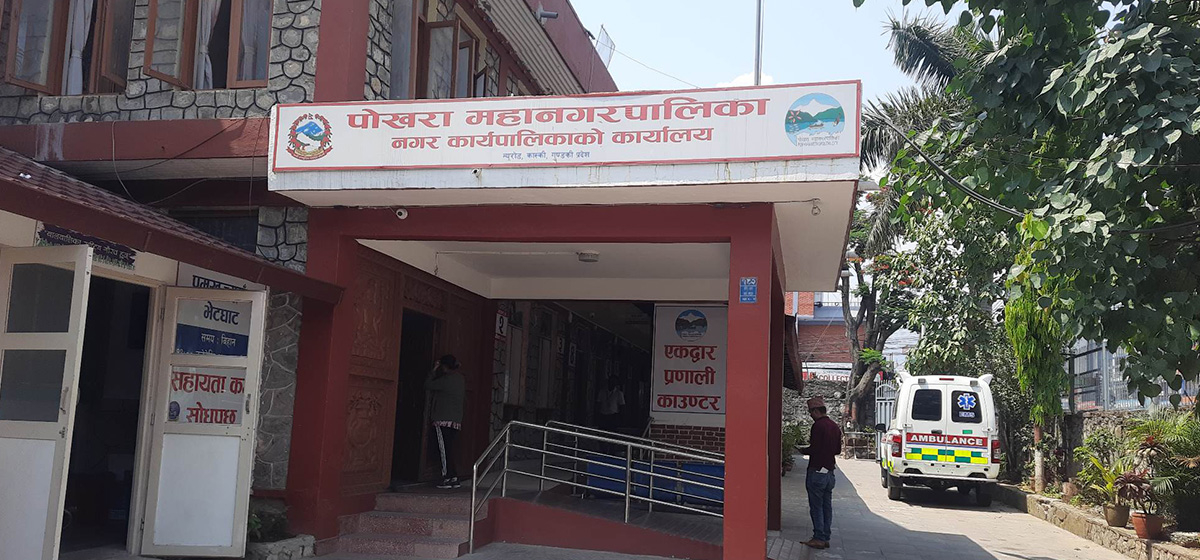

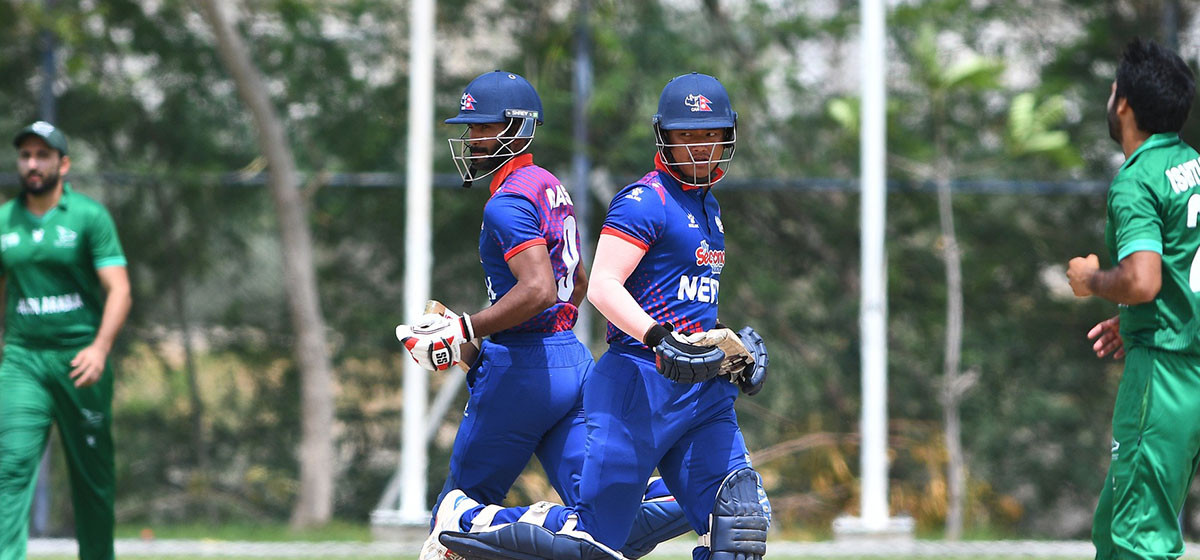
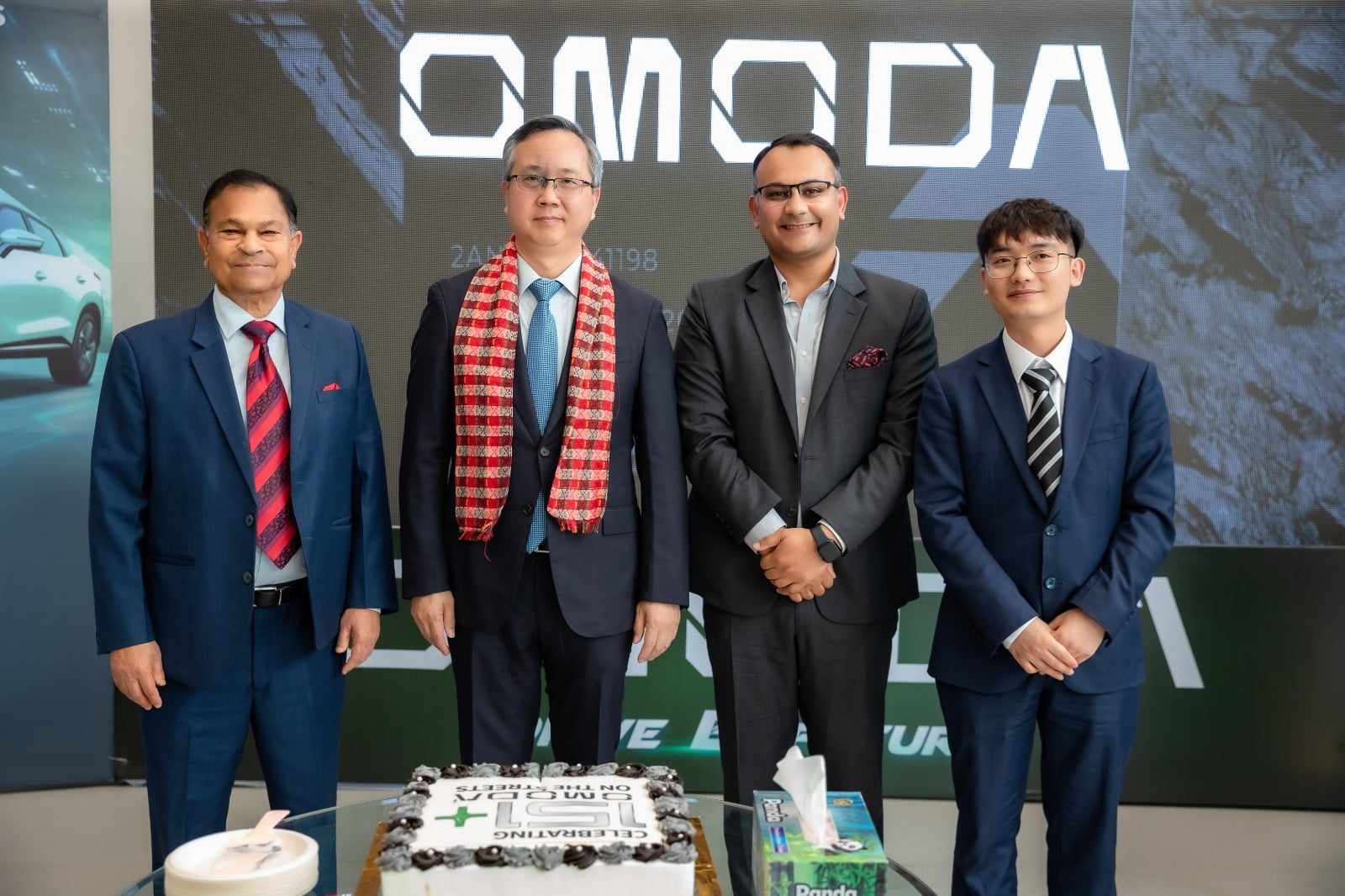
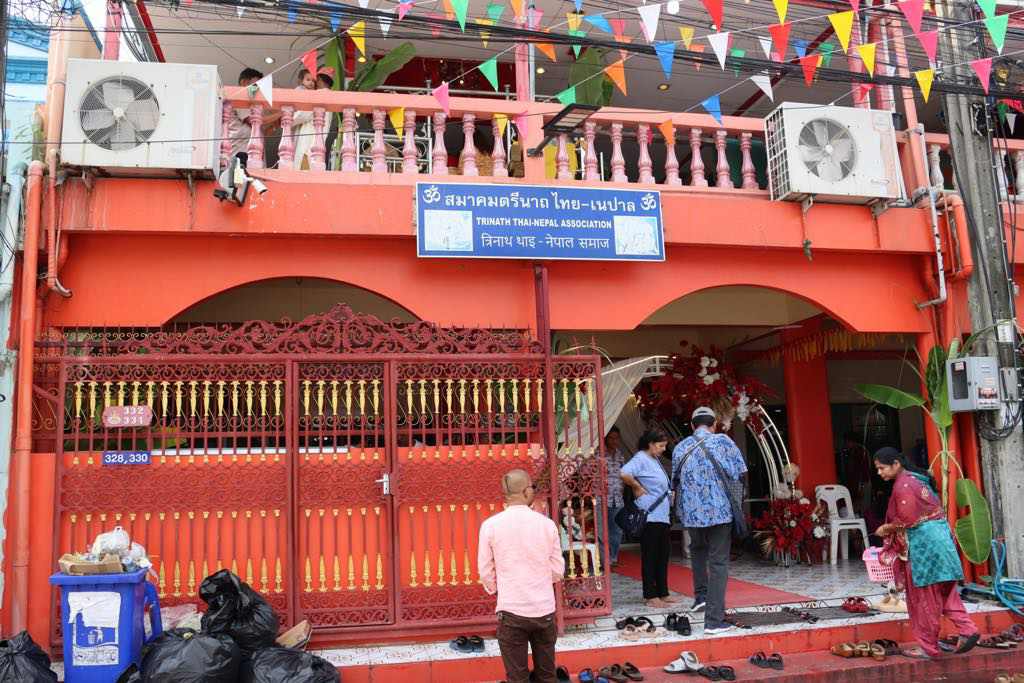


Leave A Comment